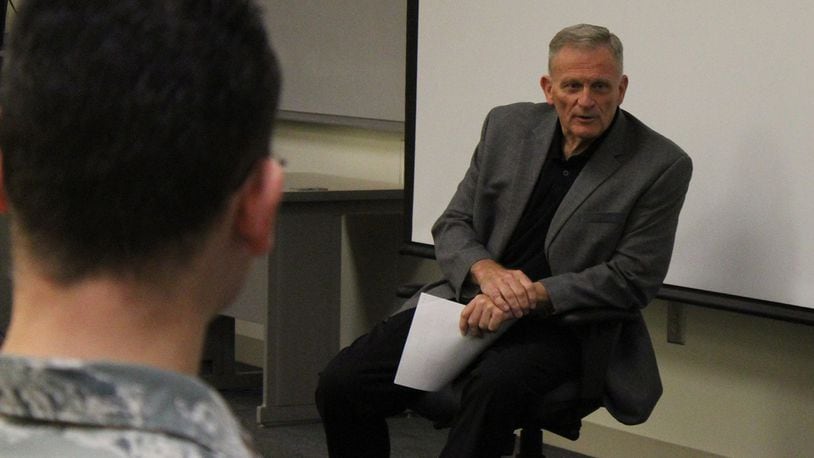Hosted by Gail Forest, Air Force Materiel Command director of engineering and technical management, 31 SMART Scholar students were chosen by their respective services to attend the symposium for an opportunity to listen to senior leaders in their career fields and to learn more about government research and the warfighter mission.
“The need for employees with an engineering and science core in the DoD is critical,” Forest said. “It is critical in the kind of work we are doing. We need scientists and engineers who can look for advance technologies and have the advance knowledge so we can move ahead of our adversaries instead of just keeping up.”
SMART Scholar students must be pursuing an undergraduate or graduate degree in a career field of science, technology, engineering or mathematics. If selected, students are awarded a full scholarship and the potential to be employed within the DoD upon degree completion of the program. The program is a three-phased process, academic, service commitment and post-service commitment.
SMART Scholar students are eligible to receive full tuition and fees paid up to five years and an annual stipend from $25,000 to $38,000. Students will also participate in an eight to 12-week summer internship.
SMART scholars who attended the symposium are currently in the middle of repaying their service time to their respective services.
Day one of the symposium began with opening remarks by Dr. Todd Stewart, Air Force Institute of Technology director and chancellor. Stewart provided an overview of Wright-Patterson AFB.
“This is a great opportunity for scholars to listen to the presentations to get an appreciation for all the science and technology careers that are available in the Department of Defense,” Stewart said. “Although there are 600 SMART Scholars in the Air Force, with Wright-Patterson Air Force Base being one of the largest employers of SMART Scholars, what they see over the two days is just the tip of the iceberg of the possibilities.”
Attendees toured the Air Force Life Cycle Management Center and Air Force Research Laboratories to gain insight on current research being conducted in the Air Force. SMART Scholars also watched demonstrations of the AFLCMC’s Death Star and AFRL’s training simulator.
Wrapping up the day, scholars attended a networking reception at the 12th annual Dayton Defense’s Wright Dialogue with Industry. Wright Dialogue with Industry is a three-day event of in-depth and comprehensive presentations, panels and breakout sessions related to the Air Force and NASA science and technology focus areas and aerospace research and development. With more than 450 people in attendance, scholars conducted a poster session and had the opportunity to interact with industry and academia.
Forest kicked off day two of the symposium by providing an overview of Air Force Materiel Command. Forest stated there are about 18,000 scientists and engineers in the Air Force and 84 percent of those are civilians. AFMC employs 77 percent of the scientists and engineers in the Air Force.
Following the overview Dale Ormond, Office of the Assistant Secretary of Defense principal director of research and engineering, provided a briefing on the SMART scholarship program. Ormond said 75 to 80 percent of SMART Scholars stay in the DoD after completing their commitment. There are 159 DoD facilities in 39 states that currently employ SMART Scholars. In 2017, 355 scholarships were awarded in the DoD, with 110 were awarded for the Air Force.
On the final day of the symposium, scholars listened to speakers from the Air Force, Army and Navy in a TED Talks like format, “Lightning Talks.” The fast-paced sessions provided insights on all of the possible career fields in science and technology in the DoD. Scholars also attended a networking and senior leader luncheon with guest speaker Gen. Christopher Azzano, AFMC’s Air, Space and Cyberspace Operations director.
For additional information on the SMART Scholarship for service program, go to www.smart.asee.org.
About the Author
